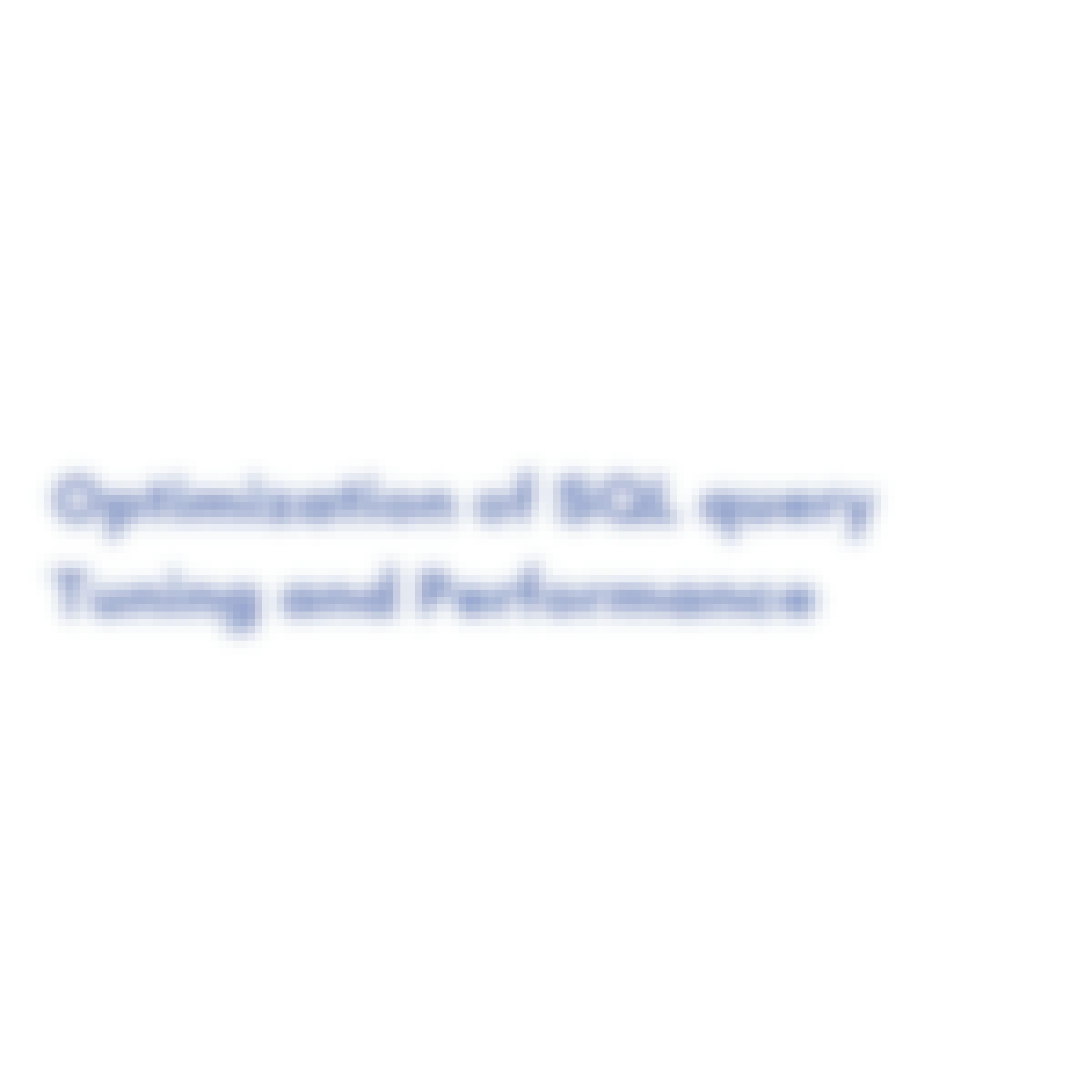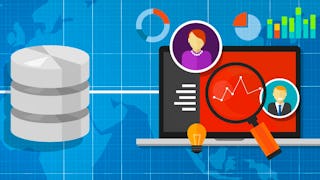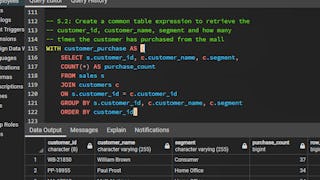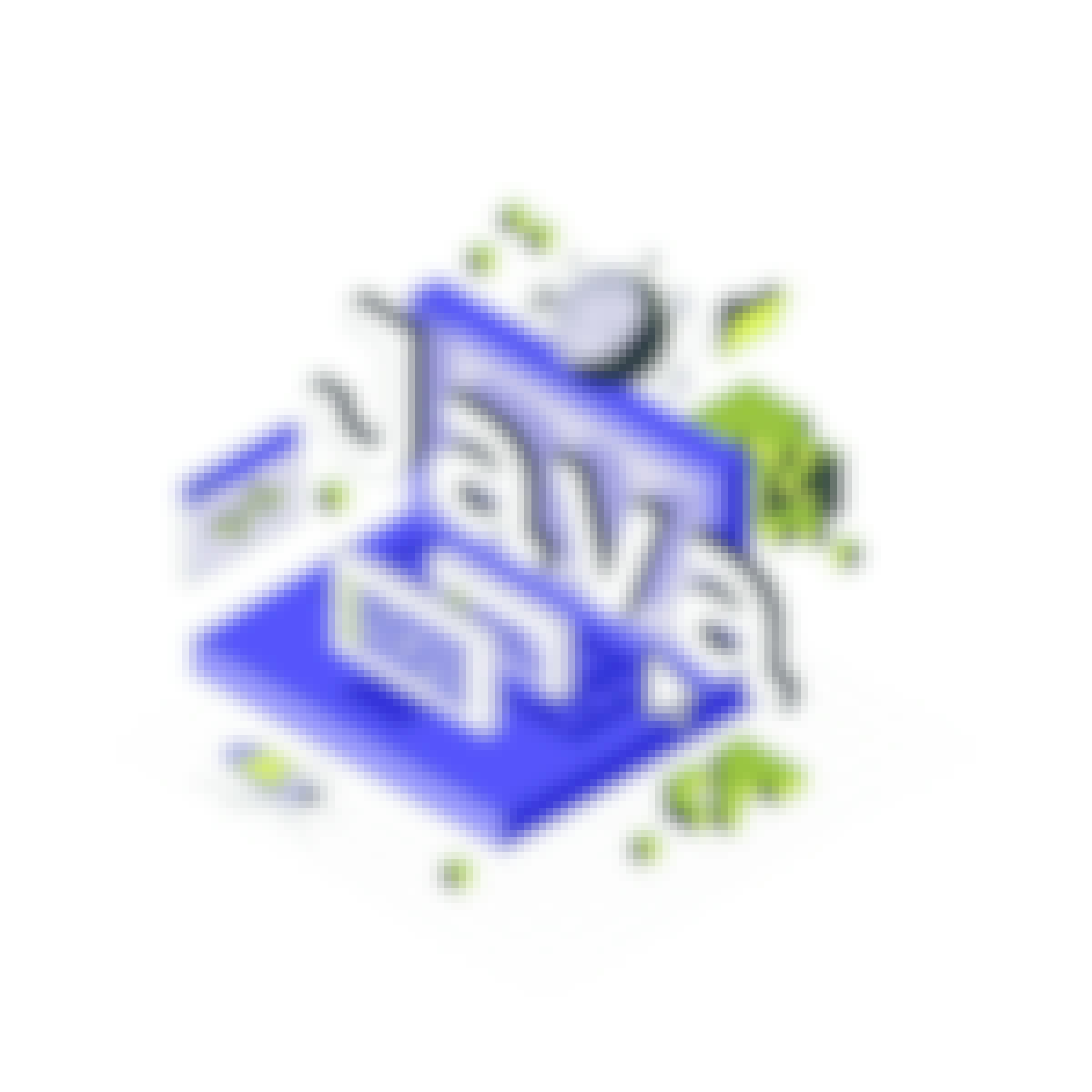- Browse
- Postgresql
Postgresql Courses
PostgreSQL courses can help you learn database design, SQL querying, data modeling, and performance tuning. You can build skills in transaction management, indexing strategies, and data integrity enforcement. Many courses introduce tools like pgAdmin for database management and PostgreSQL extensions for enhancing functionality, showing how these skills apply in real-world database scenarios.
Popular Postgresql Courses and Certifications

Skills you'll gain: SQL, Query Languages, Database Design, Performance Tuning, Database Management, Database Development, Databases, PostgreSQL, Data Access
3.2·Rating, 3.2 out of 5 stars32 reviewsIntermediate · Guided Project · Less Than 2 Hours
 Status: Free TrialFree Trial
Status: Free TrialFree TrialSkills you'll gain: Data Warehousing, Peer Review, IBM Cognos Analytics, Data Pipelines, Extract, Transform, Load, MySQL, Databases, Data Modeling, Database Design, Business Intelligence, Dashboard, Analytics, Business Analytics, PostgreSQL, Shell Script, SQL
4.8·Rating, 4.8 out of 5 stars24 reviewsIntermediate · Course · 1 - 3 Months
 Status: Free TrialFree Trial
Status: Free TrialFree TrialSkills you'll gain: Database Administration, Database Architecture and Administration, Database Management, Apache Airflow, Operational Databases, PostgreSQL, MySQL, Data Warehousing, Data Pipelines, Extract, Transform, Load, Database Design, SQL, Data Architecture, Performance Tuning, Disaster Recovery, Data Security, Data Import/Export, Data Transformation
4.7·Rating, 4.7 out of 5 stars16 reviewsAdvanced · Course · 1 - 3 Months
 C
CCoursera
Skills you'll gain: SQL, PostgreSQL, Query Languages, Data Manipulation
4.6·Rating, 4.6 out of 5 stars23 reviewsIntermediate · Guided Project · Less Than 2 Hours
 Status: Free TrialFree Trial
Status: Free TrialFree TrialSkills you'll gain: Vector Databases, AI Personalization, Embeddings, Hugging Face, Artificial Intelligence, Applied Machine Learning, Databases, MongoDB, Natural Language Processing
4.5·Rating, 4.5 out of 5 stars13 reviewsIntermediate · Course · 1 - 4 Weeks
 Status: PreviewPreview
Status: PreviewPreviewSkills you'll gain: Amazon Web Services, Database Administration, Database Design, Amazon CloudWatch, Amazon DynamoDB, Amazon Redshift, Data Migration, Database Architecture and Administration, Database Management, Database Management Systems, Disaster Recovery, Databases, Relational Databases, AWS Identity and Access Management (IAM), NoSQL, AWS CloudFormation, Cloud Security, Key Management, Encryption, Amazon S3
5·Rating, 5 out of 5 stars37 reviewsBeginner · Course · 1 - 3 Months
 Status: NewNewStatus: Free TrialFree Trial
Status: NewNewStatus: Free TrialFree TrialSkills you'll gain: Back-End Web Development, PostgreSQL, Python Programming, Restful API, SQL, API Design, Object-Relational Mapping, Database Management, Databases, Data Validation, Development Environment
3.5·Rating, 3.5 out of 5 stars6 reviewsIntermediate · Course · 1 - 3 Months
 Status: Free TrialFree Trial
Status: Free TrialFree TrialSkills you'll gain: PostgreSQL, Relational Databases, Java, Java Platform Enterprise Edition (J2EE), Systems Development, Application Servers, Database Design, Databases, Application Design, Back-End Web Development, Web Applications, Business Logic, Secure Coding, Data Validation, Payment Systems, Document Management, Authentications, Verification And Validation, File Management
4.4·Rating, 4.4 out of 5 stars19 reviewsIntermediate · Course · 1 - 4 Weeks

Skills you'll gain: Restful API, Docker (Software), Git (Version Control System), Flask (Web Framework), Application Programming Interface (API), Authentications, Application Deployment, Database Management, Cloud Deployment, JSON, Object-Relational Mapping, API Testing, Programming Principles, Python Programming, Object Oriented Programming (OOP), Data Structures
4.4·Rating, 4.4 out of 5 stars10 reviewsIntermediate · Course · 1 - 3 Months
 Status: Free TrialFree Trial
Status: Free TrialFree TrialSkills you'll gain: GitHub, Django (Web Framework), Git (Version Control System), Application Deployment, Unit Testing, Cloud Deployment, Database Development, Bootstrap (Front-End Framework), Model View Controller, Virtual Environment, Application Frameworks, PostgreSQL, HTML and CSS, Python Programming
4.9·Rating, 4.9 out of 5 stars9 reviewsIntermediate · Course · 1 - 4 Weeks
 Status: NewNewStatus: Free TrialFree Trial
Status: NewNewStatus: Free TrialFree TrialSkills you'll gain: API Testing, React.js, Authentications, Containerization, OAuth, Cloud Deployment, Back-End Web Development, PostgreSQL, API Gateway, Software Documentation, Amazon Web Services, Cloud Applications, Event-Driven Programming, Front-End Web Development, Python Programming, Database Management, Restful API, SQL, API Design, Databases
3.9·Rating, 3.9 out of 5 stars8 reviewsIntermediate · Specialization · 3 - 6 Months

Skills you'll gain: Retrieval-Augmented Generation, LangChain, LLM Application, Large Language Modeling, PostgreSQL, Database Systems, User Interface (UI), Prompt Engineering, UI Components, User Interface (UI) Design, Artificial Intelligence, Cloud Computing
3·Rating, 3 out of 5 stars8 reviewsBeginner · Project · Less Than 2 Hours
In summary, here are 10 of our most popular postgresql courses
- Optimization of SQL query Tuning and Performance: Coursera
- Data Warehousing Capstone Project: IBM
- Relational Database Administration Capstone Project: IBM
- Introduction to SQL Window Functions: Coursera
- Vector Database Projects: AI Recommendation Systems: IBM
- AWS Database Specialty Certification: EDUCBA
- Introduction to FastAPI and Backend Development Fundamentals: Packt
- Java Servlets Case Study - Online Admission Process: EDUCBA
- REST APIs with Flask and Python in 2024: Packt
- Select Topics in Python: Django: Codio










